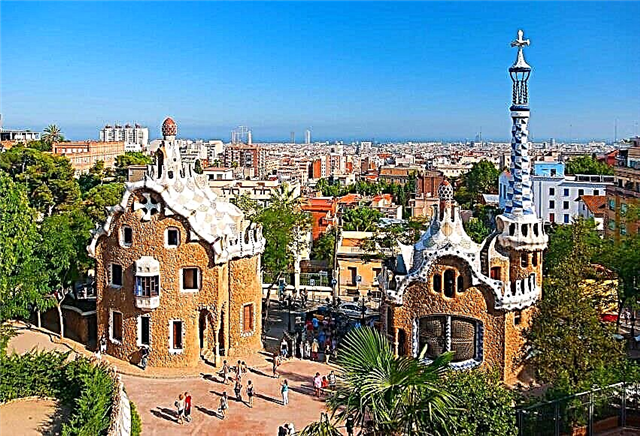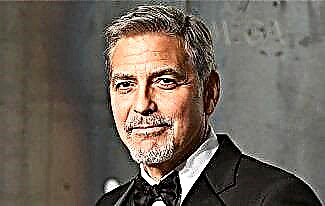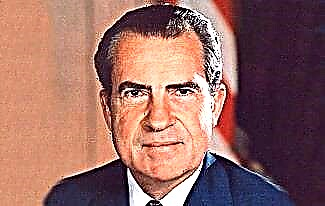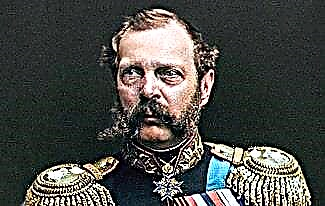There is no character in world history whose activities in terms of the number of victims can be compared with the 12 years of the reign of Germany by Adolf Hitler (1889 - 1945). The creator of the misanthropic racial theory could go down in history as a marginal politician who attracted a part of the German voters with his ideas. But it was in the Germany of the 1930s - tormented by reparations, impoverished, and politically humiliated - that Hitler's ideas fell into fertile soil. With the support of transnational capital, Hitler, becoming Reich Chancellor, absolutized his power with the full support and adoration of the German people. And when Germany began to seize one European country after another with minimal efforts, it turned out that Hitler's views and policies were close to almost all of Europe. Only the peoples of the USSR were able to stop fascism, and even then at the cost of catastrophic sacrifices.

The most striking thing about Hitler is not the number of victims of his rule. It is surprising that this man was neither a maniac nor a sadist. The facts below show that the Fuhrer was, in general, an ordinary person. Not without oddities and weaknesses, of course, but he personally did not torture or kill anyone. He sacrificed millions of people to his plans to conquer world domination, and he did it on an everyday and routine basis, often just throwing verbal orders to the adjutants. And then he could call Speer and draw projects of huge beautiful palaces ...
1. In his youth, Hitler read a lot. Friends could not imagine him without books. They filled Hitler's room, he constantly carried several books with him. However, even then the friends of the future Fuhrer noted that he did not read to obtain new information or to get acquainted with new ideas. Hitler sought to find confirmation of his own thoughts in books.
2. Adolf Hitler never bore the name Schicklgruber. Until 1876, this was the name of his father, which he later changed to Hitler.
3. Contrary to popular belief, Hitler's artwork was by no means a talentless daub. Of course, he did not shine with outstanding talent, but in 1909-1910 in Vienna, his paintings allowed him not to starve. Well, for the supporters of the version about the mediocrity of the future Fuhrer, it should be mentioned that a significant number of his canvases were purchased by frame dealers - an empty frame in a showcase looks worse than if some kind of drawing is inserted into it. A few years ago, accidentally found paintings signed by Hitler sold well at the Jefferys auction. The most expensive was sold for 176 thousand pounds. But this, of course, does not say anything about the talent of the author - the signature is much more important in this case.

One of the paintings by Hitler
4. During a visit to Italy in 1938, the head of the protocol service advised Hitler to wear civilian clothes instead of a uniform in the theater. At the exit from the theater, Mussolini and Hitler were awaited by an honor guard. Passing the formation, Hitler looked very pale next to the large Mussolini, dressed in a uniform with all the regalia and awards. The next day, Hitler had a new chief of protocol.

Hitler and Mussolini
5. The great Fuhrer of the German nation from a young age did not drink anything stronger than beer. Having received a certificate of completion of the next class of a real school (for us the name "report card" is more familiar to us), Adolf noted this success so well that he used the certificate as toilet paper with a fair amount of drinking. The Germans, accustomed to order, delivered the unsightly scraps of the document to the school, and Hitler was given a duplicate. The impression of scandal and shame was so strong that strong alcohol was excluded from his diet for the rest of his life. At the same time, he did not at all try to somehow influence others, and a wide range of alcohol was always served at his table for guests.
6. Hitler's attitude towards lovers of crayfish was different. He also did not eat crayfish himself (Hitler was generally a vegetarian), but allowed them to be served at the table. At the same time, he loved to tell old village legends about how, in order to catch crayfish, the corpses of dead old people were lowered into the river for a couple of days, because crayfish are very good at catching carrion.
7. Hitler was very addicted to drugs. This dependence cannot be called a drug addiction, but during the Second World War he took up to 30 different types of drugs. Considering that his health left much to be desired since the First World War, and the course of affairs in the Third Reich after 1942 would have knocked him down and healthy, it is clear that without external recharge, the Fuhrer's body could no longer work. And he was only a little over 50.
8. According to the testimony of Hitler's translator, the Fuhrer did not like very much when representatives of foreign powers put before him many questions that concretize his lengthy general political passages. In 1936, after a series of such questions, he broke off negotiations with the British Minister A. Eden, and three years later did not speak with the Spanish dictator Franco. From the Soviet representative VM Molotov, Hitler not only listened to all the questions. The Fuhrer immediately tried to answer those of them for which he was ready.

Hitler and Molotov
9. Hitler almost never wrote himself or dictated orders and orders. He orally, in a general form, communicated his decisions to the adjutants, and already they had to give them a proper written form. Incorrect interpretations of the orders by the adjutants could have serious consequences.
10. Rehearsing each speech in front of the mirror, practicing gestures, unwillingness to wear glasses in front of the public (special typewriters with only large letters were assembled for Hitler) - the Fuhrer knew a lot about political technologies - a leader cannot be weak in anything. Hence the stories about dozens of glasses allegedly broken in rage - Hitler mechanically took them out, but realizing that there were too many people around, he hid them behind his back. There glasses and broke at the moment of psychological stress.
11. Nevertheless, a certain psychiatric pathology was present in Hitler's behavior. Over time, he stopped tolerating any criticism. Moreover, he perceived any critical statement about himself as an attempt on his health or life. Foam at the mouth, attempts to chew on carpets and broken dishes in the Reich Chancellery were the result of this intolerance.
12. Hitler's attitude towards Jews is also typical of a psychopath. Starting with the desire to build dozens of gallows for Jews at Marienplatz, he unfortunately ended up with millions of victims in concentration camps.
13. Hitler did not feel such pathological hatred for the Slavs as he did for the Jews. For him, they were only subhumans, who, through a misunderstanding, populated fertile lands rich in minerals. The number of Slavs had to be gradually reduced to a minimum, using civilized means such as mass sterilization or lack of medical care.
14. Traveling by car, Hitler did not like to be overtaken. When he became Reich Chancellor, drivers who allowed themselves to overtake were punished. In 1937, even the Reichsleiter Hans Frank, who was Hitler's lawyer in dozens of trials, did not escape punishment. Frank in Munich quite briskly cut the car with Hitler, and had a serious conversation with Martin Bormann, who formally headed the NSDAP.
15. “A man in years with a stupid mustache” - that was Eva Braun's first impression of Hitler. So began a novel that ended only with the death of the main characters. Hitler was neither a pervert, nor homosexual, nor impotent. It's just that politics and government took too much of his life.
16. The German attack on France was postponed more than 30 times. Some of the factors that influenced the date of the attack were objective, but the reluctance of German generals to fight dominated. Hitler had to literally break their resistance and force them to lead the troops into the attack. After the war, the generals attributed the victories to themselves, and the defeats were blamed on Hitler. Although all the successes of the German troops before the attack on the Soviet Union, from the entry of troops into the Rhineland and ending with Poland, were the fruit of the Fuhrer's persistence and perseverance.

In Paris
17. The only truly "fatal decision" of Hitler was the Barbarossa Plan - an attack on the Soviet Union. The generals, behind whom lay the conquered Europe, no longer resisted, and Hitler himself believed in the weakness of the USSR, even with incomplete but significant data on Soviet military power.
18. Figuratively speaking, the poison that Hitler allegedly drank on May 30, 1945 (or, if you prefer, the bullet he fired into his temple) was made at the final stage of the Battle of Stalingrad by the 2nd Guards Army of General Rodion Malinovsky. It was this army that buried the hopes of the Goth group, which was breaking through the outer perimeter of the Stalingrad cauldron, to reduce the distance separating it from Paulus's troops to 30 kilometers. The entire Great Patriotic War after Stalingrad was Hitler's agony.
19. During the Second World War, with the sanction of Pope Pius, “how many divisions does the Vatican have?” The XII over Hitler was carried out a rite of remote exorcism. It is easy to guess that the rite, not supported by tank attacks, turned out to be useless.
20. Information about Hitler's death is rather contradictory. He either shot himself, or drank poison. Expertise in the whirlwind of the events of May 1945 was not carried out, except that they compared the dental cards of Hitler and Eva Braun with their teeth - everything coincided. For some reason, the bodies were dug up several times and buried in different places. All this gave rise to numerous rumors, versions and assumptions. According to some of them, Hitler survived and went to South America. There is one serious logical objection to such versions: Hitler really considered himself the messiah, the messenger of the gods, called upon to save Germany. When at the end of April 1945 he ordered to flood the subway with thousands of peaceful Berliners and wounded soldiers, he justified this by the fact that after the defeat and his death, there would be no sense at all in the existence of all these people and Germany. So with great probability it can be argued that the earthly path of the messenger of the gods really ended in a shell funnel from which the feet of Hitler and Eva Braun protruded.









